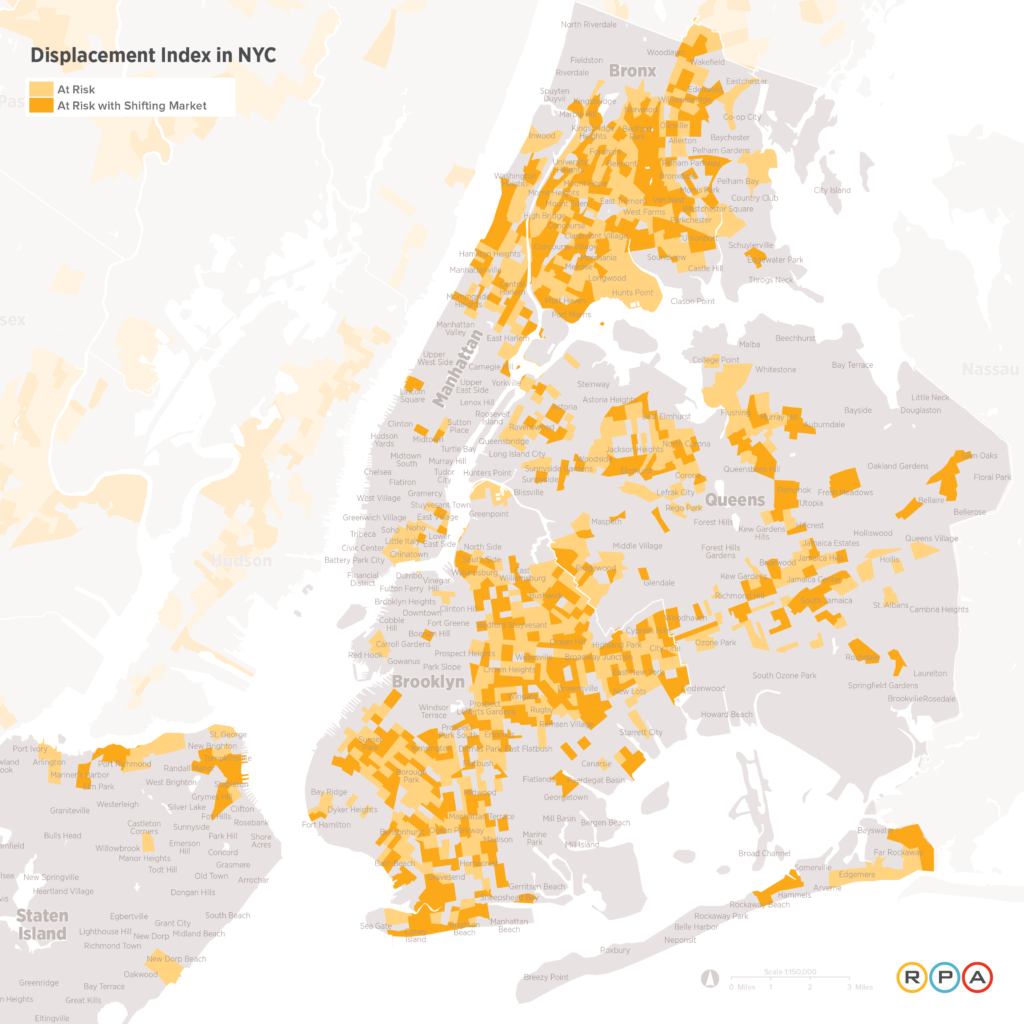’ ”It does get nicer. But where’s everybody else going to go? Down south? Where are we going to go?’”
These are the words of Dayon Hopkins, a resident of the Brooklyn neighborhood of Brownsville. Hopkins recounted the changes he’s witnessed in his neighborhood in Tuesday’s New York Times.
Fears of gentrification in Brownsville have been stoked by Governor Cuomo’s announcement of a $1.4 billion plan to bring new amenities and health care options to the neighborhood. While many welcome the investments in an area that has historically lacked these resources, others have voiced fears of neighborhood change that may not include them in the long run.
In an effort to predict future gentrification and displacement pressures in the region, a new RPA report identifies the places in the New York metropolitan region that have economically vulnerable residents, geographic and building characteristics that make a neighborhood susceptible to gentrification and shifting market activity. As shown in the map below, large parts of Brownsville were found to be at-risk of displacement pressures and many are already seeing a shift to more expensive housing.
But legitimate fears of gentrification should not keep us from making sorely needed investments in health care, schools, parks and affordable housing in Central Brooklyn and other places with displacement risks. Affordability and livability don’t have to be a tradeoff and, done correctly, government investment can benefit both current and future residents. But it does mean that the details of how this money is invested is important, and that policies will need to be carefully formatted to account for possible displacement and make sure that existing residents are able to stay in their neighborhood and benefit from this investment.
Stories of displacement and fear of gentrification are not unique to Brownsville, or even to Brooklyn. In addition to the report, RPA also released seven audio stories highlighting how residents from East Harlem, New York to Elizabeth, New Jersey to Bridgeport, Connecticut are being pushed out of their homes by an increasingly unaffordable housing market. Listen to their stories or dig into the report to learn more:[map and audio stories] [report]

